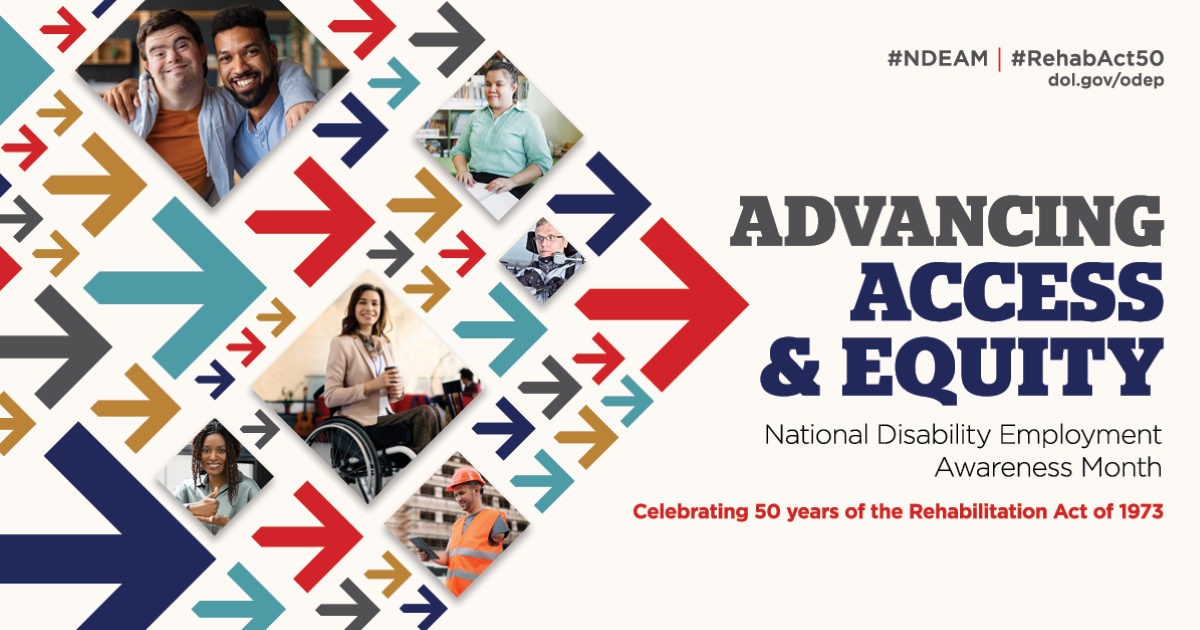In celebration of National Disability Employment Awareness Month and the 50th anniversary of the Rehabilitation Act, Mathematica is proud to partner with federal and state agencies and nonprofit organizations to generate new evidence on programs and policies that can dismantle barriers to employment and advance access and equity for people with disabilities. A growing number of projects, including our new evaluations of Ticket to Work and the Disability Innovation Fund, engage people with disabilities to transform our understanding of how—and for whom—policies and programs work.
“We know that our work to advance employment for people with disabilities has greater impact when we partner with people with disabilities,” said Purvi Sevak, director of disability business development at Mathematica. “Collaborating with people with disabilities and incorporating their lived experiences are vital to the success of employment policies and supports.”
Including the perspectives of people with disabilities in evaluations is central to understanding their employment experiences. Through focus groups and listening sessions, we have uncovered important insights that can inform service providers’ strategies to improve engagement and support of youth who are underserved, including those who are no longer in school. Learn more about the work done to improve services for young adults from diverse racial and ethnic backgrounds served by Centers for Independent Living and the efforts to identify promising practices and policies that can support employment of young adults on the autism spectrum.
In partnership with the Rehabilitation Services Administration, we are generating new evidence on effective models and practices for schools, Centers for Independent Living, and state vocational rehabilitation agencies to help people with significant disabilities transition to competitive integrated employment. Mathematica’s evaluation of the projects funded by the Disability Innovation Fund in federal fiscal years 2022 and 2023 incorporate the perspectives of people with disabilities, their families, and service providers, including people traditionally underserved by these programs.
As we continue to help improve disability employment programs and supports, we are researching policies and programs related to a range of other services that people with disabilities say make their employment possible, such as affordable housing, health care, home and community-based services, and transportation. Case management is another service that is key to improving the well-being of people participating in a range of support programs. We are working with state agencies and people with disabilities in Iowa, California, and Florida to improve access to these services, and recent research suggests there are still unrealized cross-system opportunities to increase access to these services.
The federal government is also showing encouraging progress in advancing the disability rights movement philosophy of “nothing about us without us.” For the Social Security Administration’s recent launch of the Ticket to Work evaluation, Mathematica will use equity-centered research methods in which researchers, organizations, and community members collaborate on all aspects of the research project.
Revisit Mathematica’s Center for Studying Disability Policy’s roundtable discussion, Insights from Federal Agencies on How to Engage People with Disabilities in Policies, Programs, and Evaluations, to hear experts from the Social Security Administration, the U.S. Department of Labor, and the Administration for Children and Families discuss ways their agencies are incorporating lived experience and equitable research practices into their disability-related programs and policies.
Check out our latest work to advance disability employment policy and programs here and our reflections in a new blog on how centering the lived experience of people with disabilities has improved the quality of our research.
Contact
-
Christal Stone Valenzano
cstone@mathematica-mpr.com
202-250-3520


